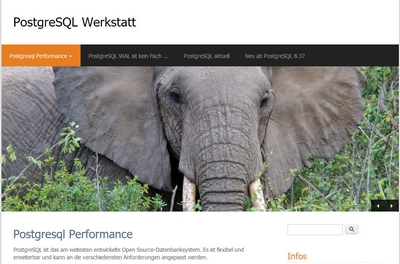Sammlung von Newsfeeds
Ian Barwick: PgPedia Week, 2025-11-30
Floor Drees: Contributions for week 48, 2025
Seattle Postgres Users Group (SEAPUG) maintained the PostgreSQL booth at PASS Data Community Summit 2025 from November 17-21, 2025:
- Lloyd Albin
- Jeremy Schneider
- Harry Pierson
- Ben Chobot
- Deon Gill
- Rick Lowe
- Pavlo Golub
Speakers:
Jeremy Schneider: Postgres Booth at PASS Data Community Summit
PASS Data Community Summit 2025 wrapped up last week. This conference originated 25 years ago with the independent, user-led, not-for-profit “Professional Association for SQL Server (PASS)” and the annual summit in Seattle continues to attract thousands of database professionals each year. After the pandemic it was reorganized and broadened as a “Data Community” event, including a Postgres track.
Shinya Kato: Analyzing psqlrc Settings on GitHub: How PostgreSQL Engineers Configure PostgreSQL
Recently, I read an article titled "Alias Settings of Engineers Around the World" (in Japanese). As a PostgreSQL engineer, this got me thinking: "If they are customizing their bash aliases, how are they configuring their psql environments?"
Driven by curiosity, I decided to investigate GitHub repositories to see how developers commonly configure their psqlrc files.
Hubert 'depesz' Lubaczewski: Using JSON: json vs. jsonb, pglz vs. lz4, key optimization, parsing speed?
Robins Tharakan: Teaching Query Planner to See Inside C Functions
Jan Wieremjewicz: TDE is now available for PostgreSQL 18
Back in October, before PGConf.EU, I explained the issues impacting the prolonged wait for TDE in PostgreSQL 18. Explanations were needed as users were buzzing with anticipation, and they deserved to understand what caused the delays and what the roadmap looked like.
Robins Tharakan: Settling COUNT(*) vs COUNT(1) debate in Postgres 19
Dave Stokes: DBeaver's Visual Query Builder
Quick! You need to create a complex query, but you don't remember how to join the tables. And you need to get it done ASAP.
You are in luck if you have an enterprise edition of DBeaver handy. You can drag and drop the tables and then adjust the clauses as needed without having to dig into the table definitions.
1. Open the database
Magnus Hagander: FOSDEM PGDay 2026 - Call for papers and registration open
The call for papers is now open for FOSDEM PGDay 2026. The CfP will run until December 15, 2025 at 11:59 CET. We will aim to notify speakers by December 17th, 2025 and publish the schedule before Christmas.
Esther Minano: pgstream v0.9.0: Better schema replication, snapshots and cloud support
Gabriele Bartolini: KubeCon NA Atlanta 2025: a recap and CloudNativePG’s path to CNCF Incubation
This blog post recaps my eventful participation in KubeCon + CloudNativeCon North America 2025 in Atlanta, highlighting the key decision by maintainers to formally apply for CNCF Incubation for the CloudNativePG operator.
Philippe Noël: ParadeDB 0.20.0: Simpler and Faster
Hans-Juergen Schoenig: Super fast aggregations in PostgreSQL 19
PostgreSQL 18 has just been born and we are already talking about the blessings of PostgreSQL 19 and beyond? Well, yes, and there is a good reason for it.

